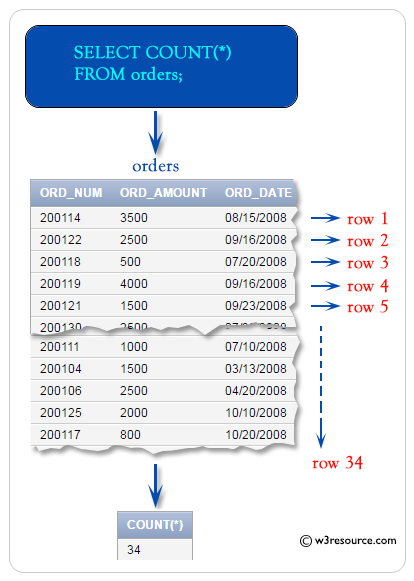

Luckily, PDO has a dedicated function to get that single number right off the query, fetchColumn(). The count() returns the number of all rows in a group, and count(columnname) return the number of non-null values of the columnname column in a group. In case of the latter, only values of this field that are not null will be counted). The syntax for the count function in SQLite is: SELECT count(aggregateexpression) FROM. (note that it doesn't matter which constant value to use as a count() function's parameter, be it *, 0 or 1 or anything - all works the same as long as it's a constant as opposed to the field name. The SQLite count function returns the count of an expression. SELECT count (*) FROM goods WHERE category_id = 1 The SQLite count () function is an aggregate function that is used to fetch the total number of rows from the table by using the specified expression and conditions. I can get the list of tables like this: select count () from (SELECT name FROM sqlitemaster WHERE type'table') but would just return the total rows in the subquery, which isn. I want to avoid writing out a longhand query. I want to get the count of rows in every table in a Sqlite3 database. Instead, you should always ask your database to count the rows and then return the only number, with a query like this: SELECT count ( 1 ) FROM users sqlite count rows of tables identified by subquery.

At the present I have to use two sql statements: one is. When you need to count rows that match some criteria in your database, under no circumstances you should select the actual rows and then use rowCount()! I want to get the number of selected rows as well as the selected data. If the SELECT statement does not have a WHERE clause, the COUNT () function returns the total number of rows in the table.


 0 kommentar(er)
0 kommentar(er)
